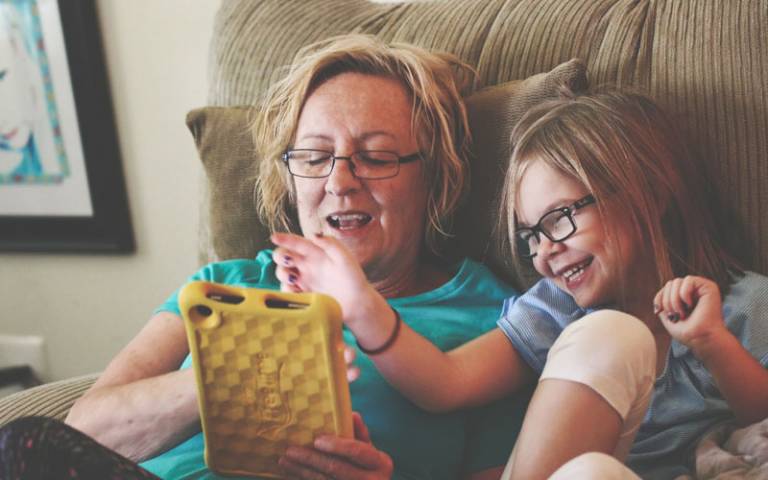IOE hosts a symposium on how families plan languages in the home
6 September 2019
UCL Institute of Education (IOE) has hosted a symposium about how languages are planned and managed within the home and among family members across the world.

This planning, known as Family Language Policy (FLP) is a new research area. The symposium brought together academics from around the globe to generate new knowledge, employ new methods and develop new theories about different sociocultural practices of families.
This symposium was organised by academics working on the UK-based research project, ‘Family Language Policy, 2017-2019’, funded by the Economic and Social Research Council (ESRC). It is headed by the IOE’s Professor Li Wei along with Professor Xiao Lan Curdt-Christiansen (University of Bath) and Professor Zhu Hua (Birkbeck, University of London).
The symposium examined different types of linguistic and media practices and how these vary or remain the same across different sociopolitical contexts and sociocultural communities.
A wide range of presentations took place. Professor Li Wei, Professor Xiao Lan Curdt-Christiansen and Professor Zhu Hua talked about their project which explores the types of Family Language Policy (FLP) that exist in the UK at the national level, how FLP is shaped, established, and implemented at the community level, and how the actual practices are managed at the family level.
Through a national survey, community profiling, and studying family cultures, the project examines how different migration experiences, linguistic and educational backgrounds and resettlement patterns influence people’s attitudes and ideologies towards developing the different languages in their families and communities.
The IOE’s Sahra Abdullahi also delivered a talk examining ‘the role of literacy in language ideology and practice within the Somali community’. Sahra Abdullahi’s talk focused on a language shift among the Somalia community due to the majority of young Somalis having less contact with the Somali language than their predecessors. This is due to the late standardisation of the written language system in 1971 and the interrupted rollout of Somali literacy in the education system due to the outbreak of the civil war in 1991.
This has raised many questions regarding the Somali identity and the role of language in its maintenance. Effort has been made by the community at large to encourage literacy in a bid to cultivate new speakers and readers of the language from within the younger generation, but little progress has been recorded on this front.
Other talks at the event explored ‘Family language policy in multilingual transcultural families in Norway’ and ‘Digitally-mediated communication within contemporary multilingual families across time and space in Finland’.
 Close
Close

